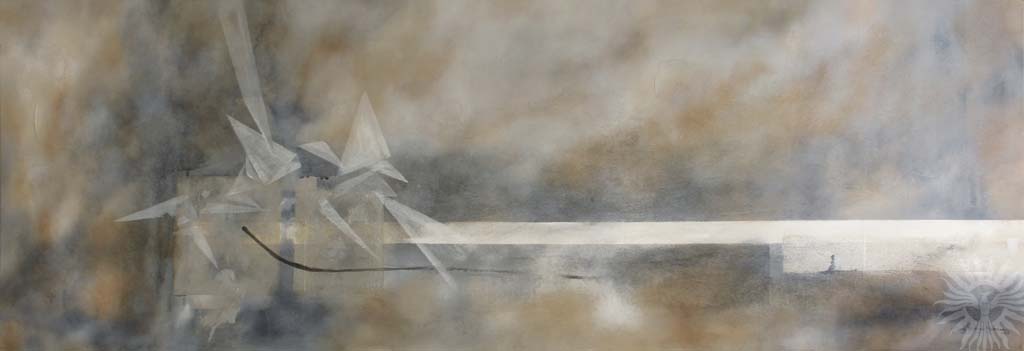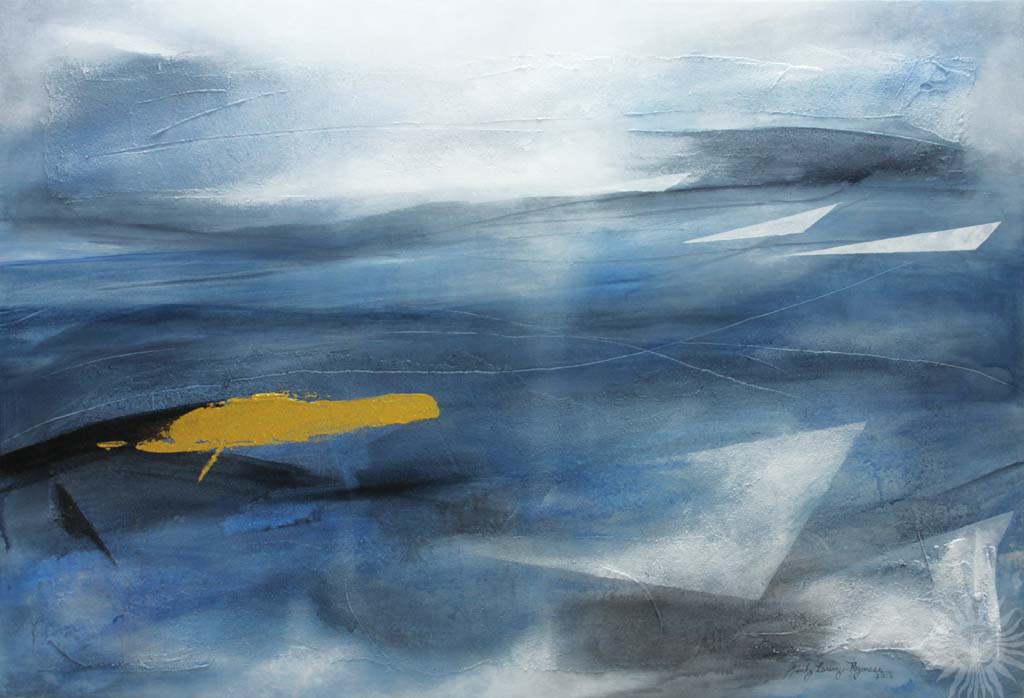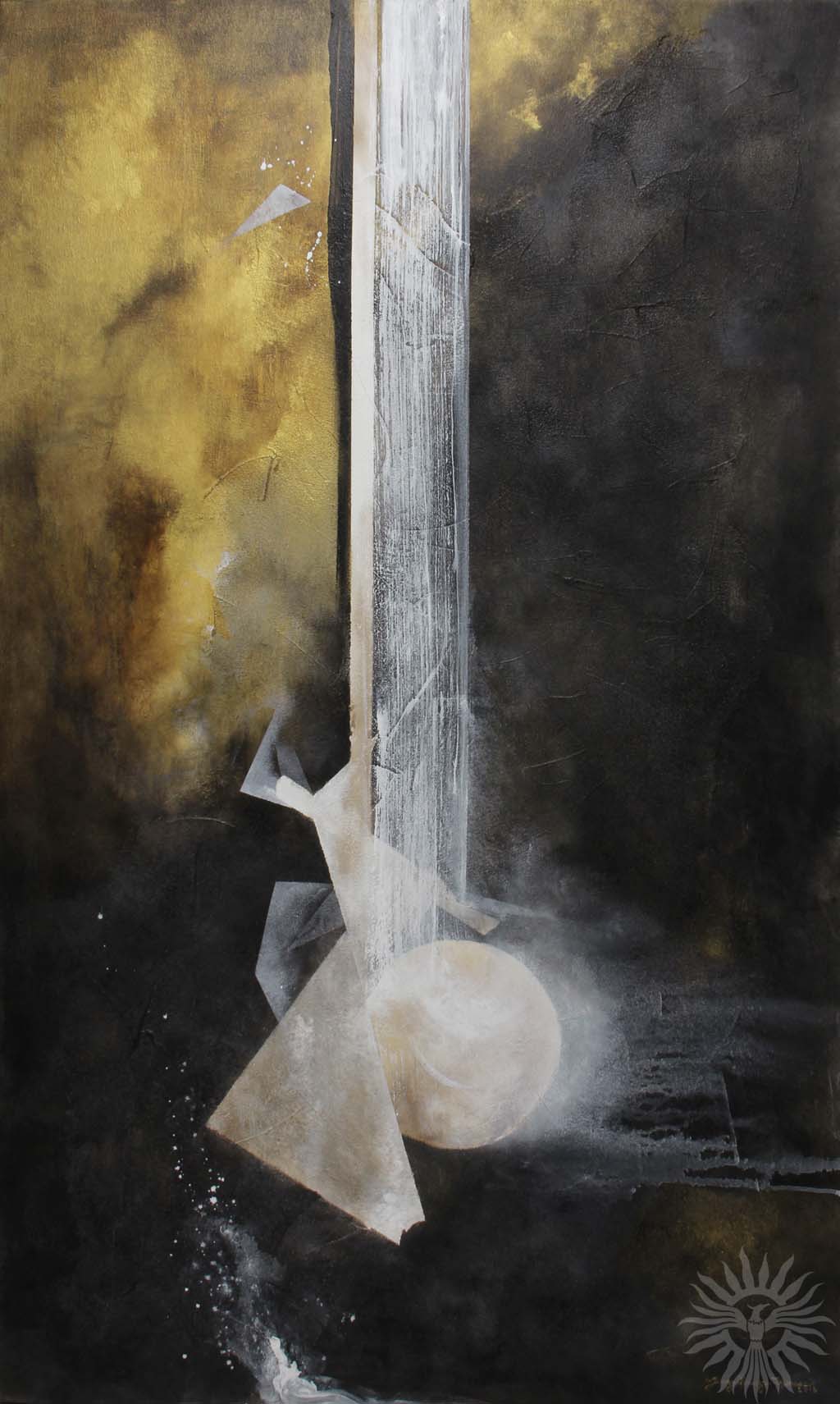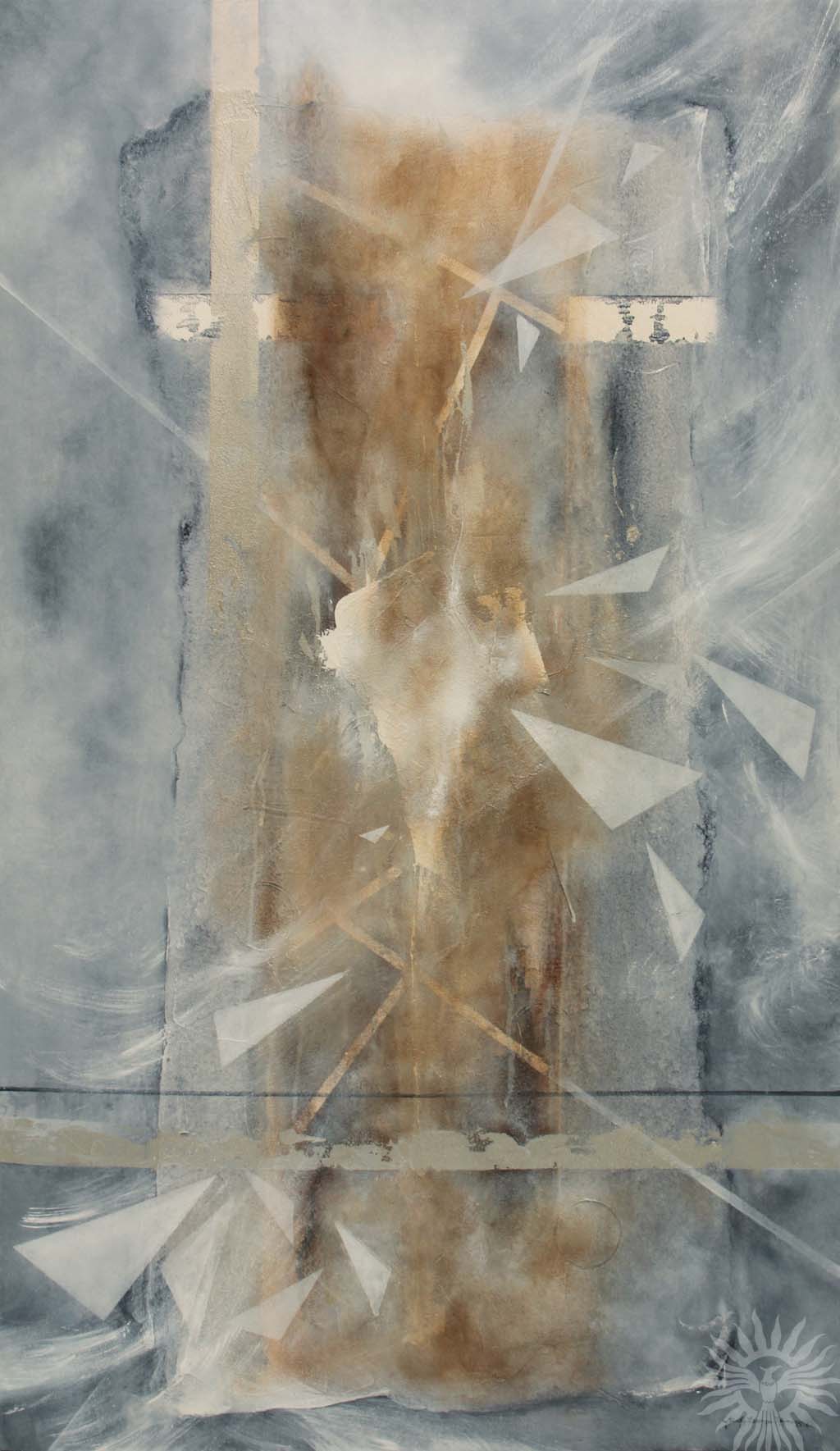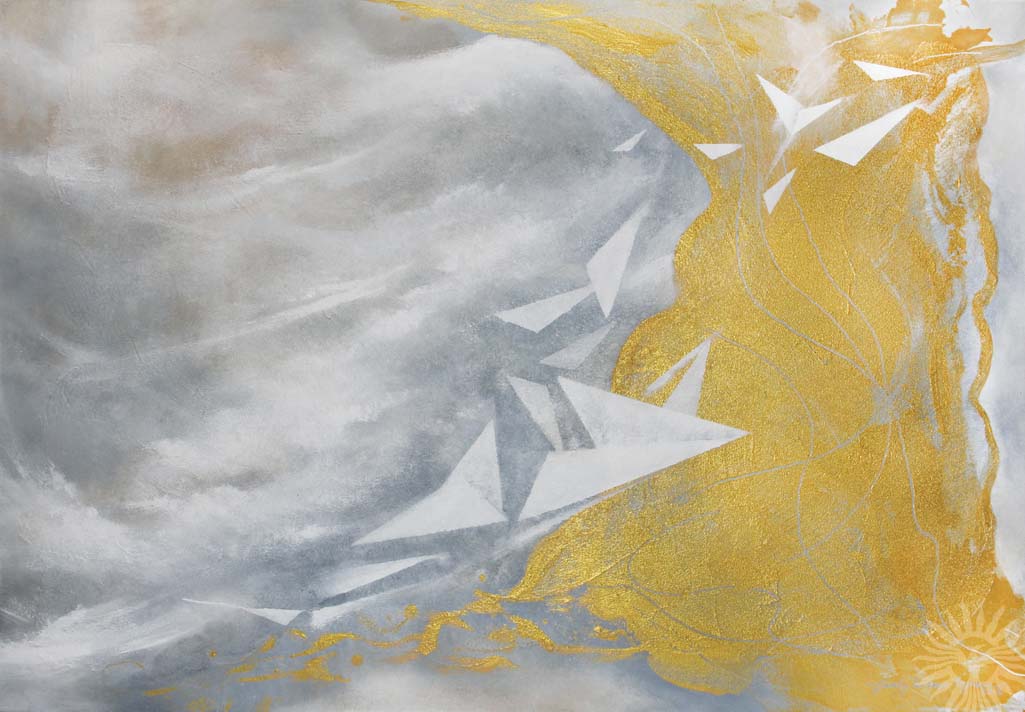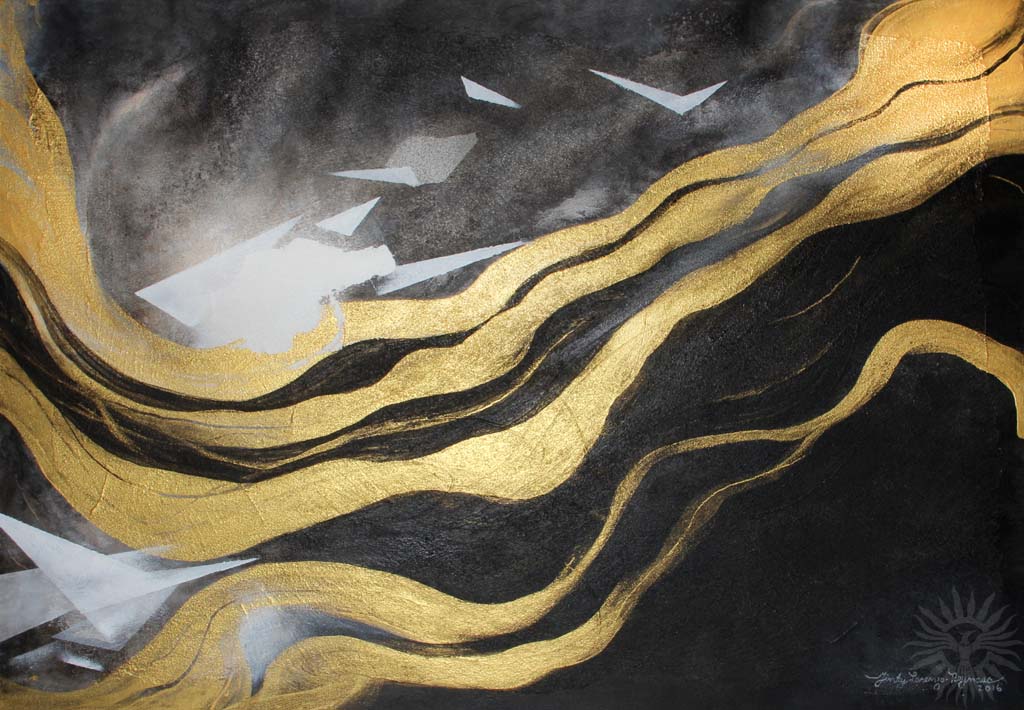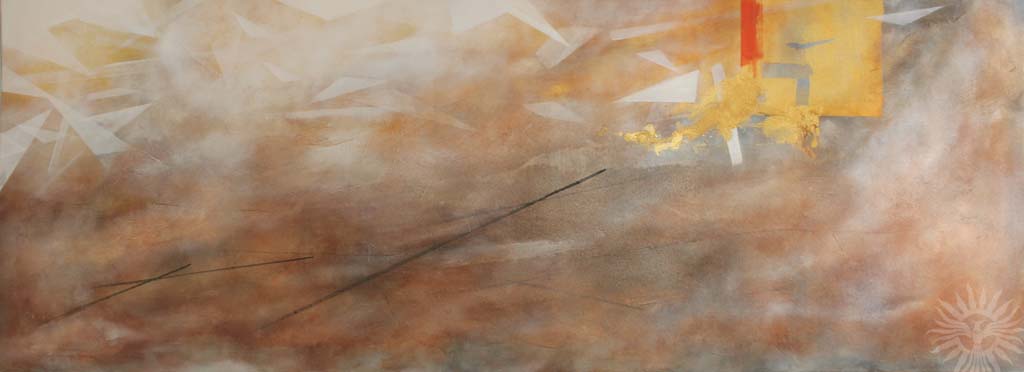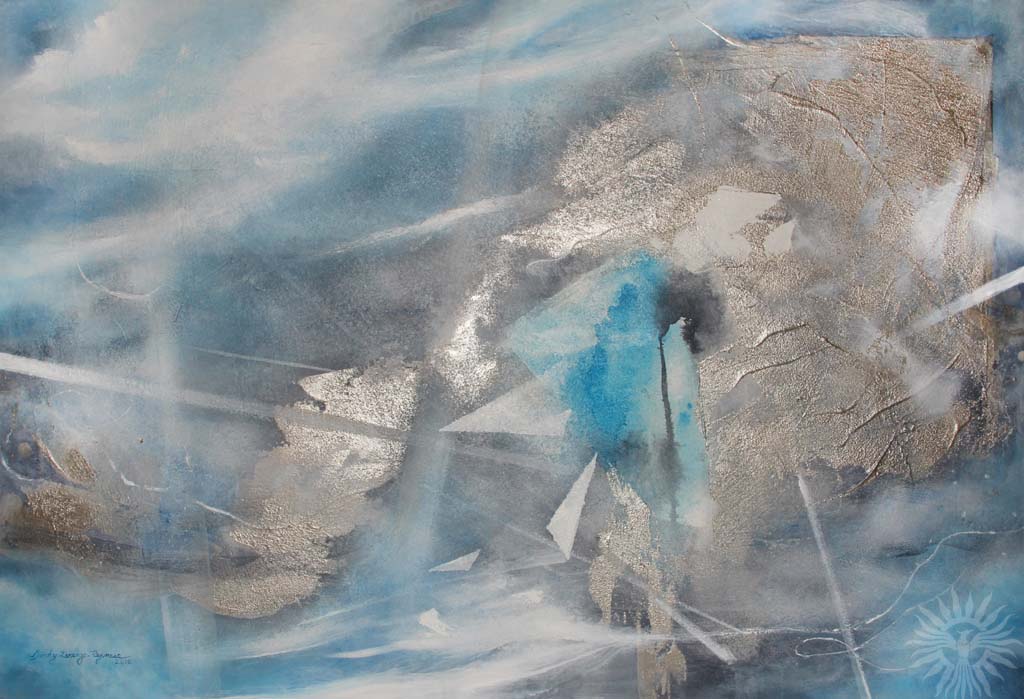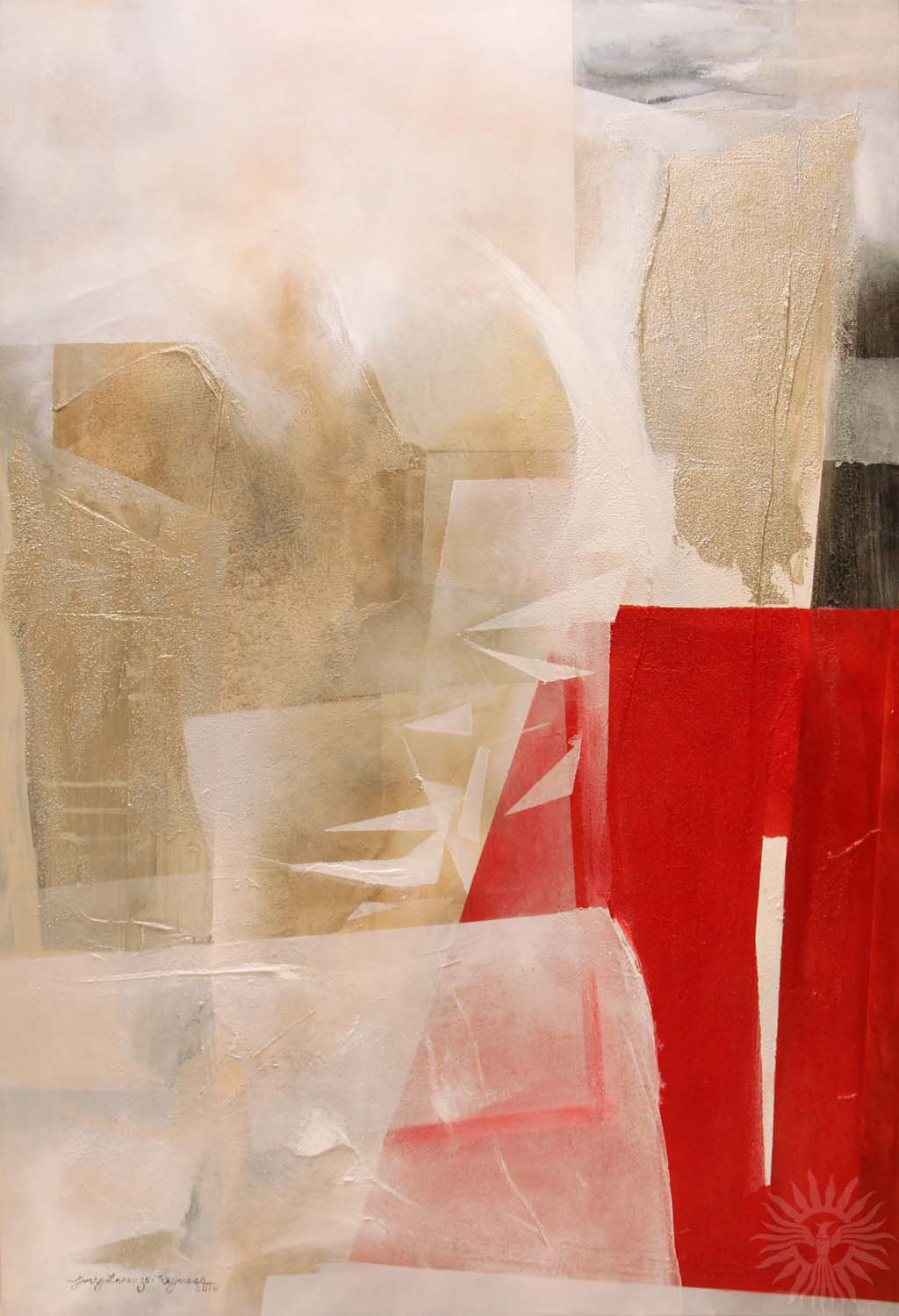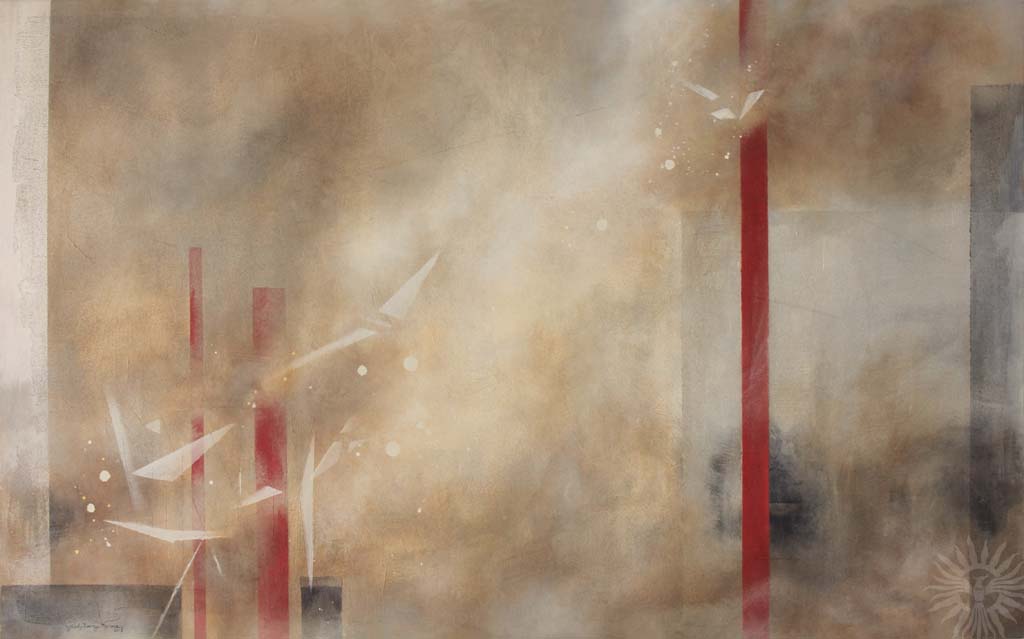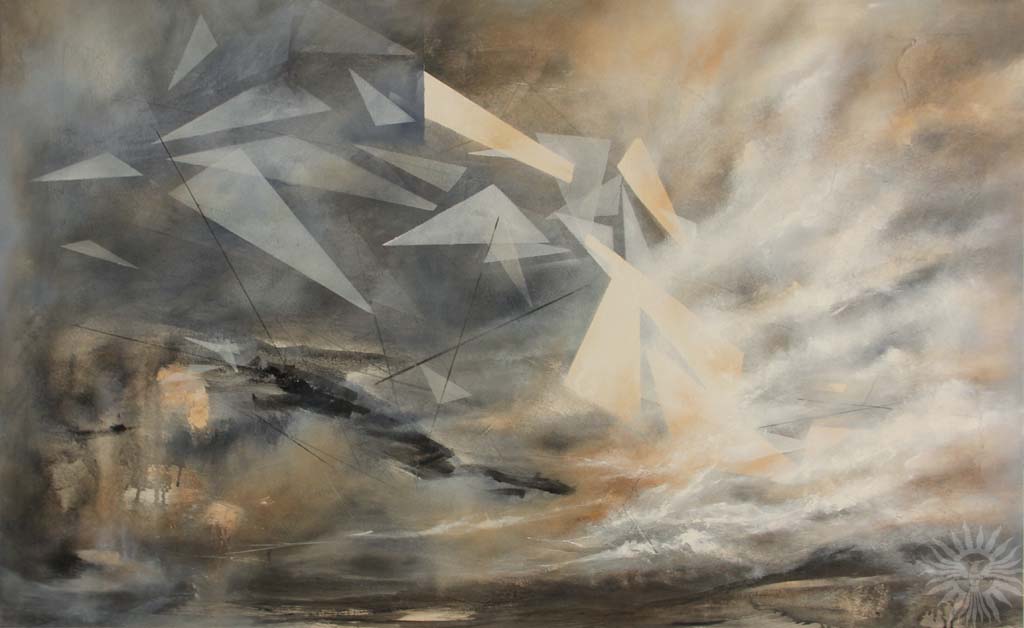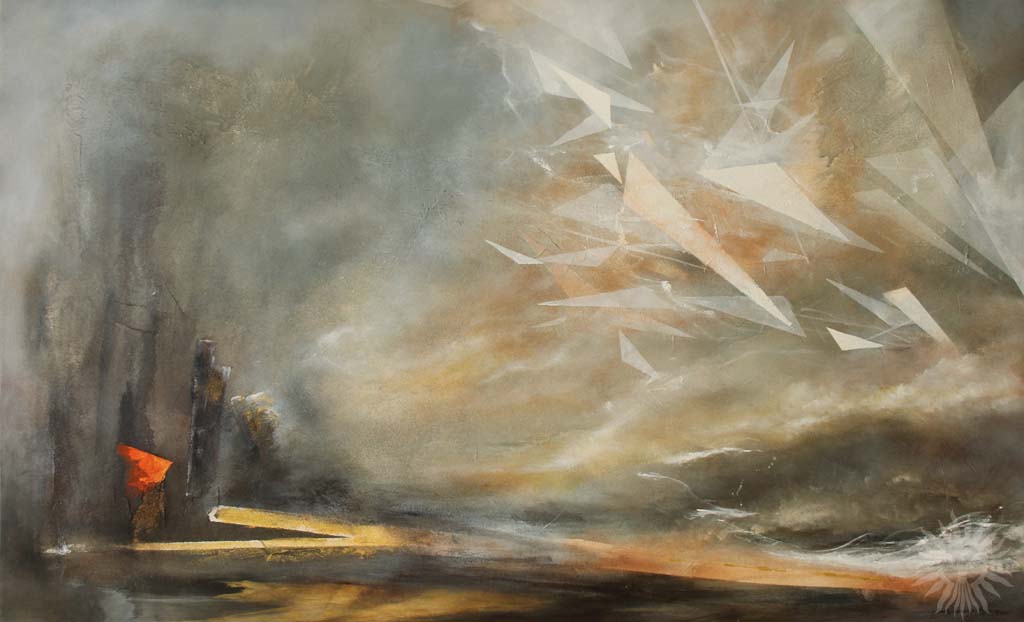The Song of Zephyr
February 22, 2017 - March 9, 2017
Jinky Lorenzo-Reynoso
Makati Shangri-La, Manila
JINKY LORENZO REYNOSO:
“THE SONG OF ZEPHYR”
By: Cid Reyes
The Greek god and personification of the gentle west wind was Zephyros who figured prominetly in Botticelli’s allegorical “Birth of Venus.” As the goddess rises from the oceanic waters borne upon a half-shell, she is described in a Homeric hymn as “blown by the moist breath of Zephyros…carried on the waves of the resounding sea on soft foam.” From his name was derived the English word zephyr, meaning a gentle breeze.
Borne by the same gentle wind of Zephyros is artist Jinky Lorenzo Reynoso, who has found inspiration in the invisible, but perceptible, current of creative air that has blown her way at a crucial time when she was seeking a right direction for her art. It is understandable that, being the granddaughter of the esteemed pioneering artist Diosdado Lorenzo, Reynoso, would want to find and assert her own identity. The continuity of an artistic legacy after all does not mean staying “under the shadow of a great oak tree,” to borrow Brancusi’s metaphor for his languishing under the influence of the great Rodin.
By her own admission, Reynoso saw her deliverance in the works of the senior abstractionist Gus Albor, and while the influence is evident in the evocative openness and vast vistas of space, in the earthen and gray tonality, and in the flooding of watercolor-thin washes of neutral pigments of her works, Reynoso makes visible what is invisible, recalling Klee, through the presence of the air-swept paper planes, withered leaves and feathers that take flight – in the inspired poem Reynoso herself has written – “Outward and upward/ Free and unconfined/ Defying what is gravity/ The Song of Zephyr.” These works find their equivalence in the spiritual resonances of freedom and liberation, in the sheer exhalation of the spirit with its instinct for flight and light, for ethereality that goes beyond the optical and the retinal, and into the regions of mystery and enigma. When then perceived by the viewer – the paintings instinctively withdraw in the presence of the mean-spirited - he will be rewarded with a sudden and uplifting wind-like rush of exaltation.
With the “The Song of Zephyr,” Jinky Lorenzo Reynoso has come to her own lyrical voice, and surely this news is music to the ears of her beaming grandfather, Diosdado Lorenzo, now in the Great Beyond.
-
